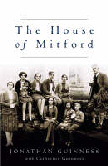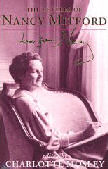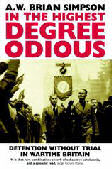










 |
 |
 |
 |
 |
 |
||
 |
 |
 |
 |
 |
British establishment interference with civil liberties during the 20th centuryRule 18B and 18B(1a),
|
|||
|
|
|||
| British establishment interference with civil liberties during the 20th century—the example of Diana and Oswald Mosley is one of a series of documents analysing dysfunctional social, or group, behaviour in modern society. See also Oswald Mosley, Britain's very own national socialist. |
s |
introductionI regard the pre-war appeasement policies (advocated, amongst others, by the Mosleys) as extremely wrong-headed and as a contributory cause of World War Two. However, my main purpose in publishing this document is to present an accurate record of the suspension of civil liberties in the United Kingdom at the beginning of WW2. The government of the day took those actions in the extremely fraught conditions which had been allowed to develop. How justified they were, you must assess for yourself. You may find an apologia at this web-site with further details. My interest stems from recent attacks on civil liberties in several advanced countries, in particular the United Kingdom. For much more detail, visit magnacartaplus.org.
|
|
|
chronology |
||
| Mosley’s voyage to the left | ||
| 1896 - 1980 | Oswald Mosley | |
| 1914 -1916 | Mosley serves on the Western Front, transfers to the Royal Flying Corps, invalided out in 1916 after a ’plane crash. | |
| 1918 | Becomes a Tory M.P. for Harrow at the General Election. | |
| 1922 | The Conservative Party is not radical enough for him, he wins Harrow as an Independent. Two years later, he joins the Labour Party. | |
| 1927 | Elected to Labour Party’s National Executive Committee (N.E.C.) | |
| 1929 | Labour win 1929 General Election. Mosley appointed Chancellor of the Duchy of Lancaster. MacDonald rejects his proposals. Mosley resigns from office. | |
| 1930 | Forms the ‘New Party’. | |
| 1932 | Meets Mussolini. Forms the British Union of Fascists (probably funded by Mussolini). | |
| 1936 | Marries Diana Freeman Mitford (divorced from Brian Guinness) in the house of Goebbels, Hitler present. [See Bibliography.] | |
| 1939 | Mosley gives a two-hour speech during a Fascist meeting at Earl's Court. | |
| 1951 | “Our aim is Europe a Nation, our faith is European Socialism.” Mosley[1] | |
Effects of the Emergency Powers Act |
||
| 28 August 1939 | Emergency Powers Act (1939) | |
| 22 May 1940 | Habeas Corpus Act [2] effectively suspended (being ignored by the courts) with an amendment [Rule 18B [1a] (1a)] to Rule 18B of the Emergency Powers Act (1939). [3] | |
| 23 May 1940 | Oswald Mosley arrested without charge and interned in Brixton Prison. (At this time, the younger child of Diana and Oswald Mosley, Max, was merely 5 weeks old, while Alexander was 2 years. Diana’s children, and Desmond, from her first marriage were of prep school age, while Mosley’s son, Jonathan, was about 17 years old.) Lice and bugs infested the wood frames of the beds [at
Brixton Prison]. He became very thin. [Mosley, D., p.184] |
|
| 29 June 1940 | Diana Mosley arrested and put in Holloway prison. Max, age 11 weeks, and Alexander (2 yrs) were sent to relatives. Diana’s first cell was in a basement, the windows sandbagged up.[Mosley, D., p.176] “Unlike the Brixton cells, our cells were not
infested with vermin, but the whole place was foul beyond
words and efforts by the 18B prisoners [4] had only been partially successful. The lavatories were
disgusting and there were queues for them.”. She would not eat most of the disgusting prison food, and survived mainly on prison bread and Stilton cheese sent by Mosley. |
|
| Spring 1941 | Husbands and wives imprisoned under Rule 18B allowed to see each other for 30 minutes per fortnight. | |
| Max (aged about 1 yr) brought for a one hour visit. | ||
| November 1941 | Oswald Mosley transferred from Brixton Prison to Holloway Prison. The Mosleys were placed with other internees in a ‘house’ that, according to the Mosleys’ eldest son, was more like a deserted cotton mill. [Lovell, p.364] During his time in prison, Mosley became so ill that a Home Office doctor who examined him said that “if M. got a chill, or influenza, in his present condition he [the doctor] would not answer for the consequences”.[Mosley, D., p.197] |
|
| 1943 | Alexander (4 yrs) and Max (3 yrs) were allowed to stay with their parents in prison for two nights. But the visit was too upsetting to the children so there were no more visits after the second visit. | |
| 1943 | Diana and Oswald Mosley released from Holloway Prison,
to live outside London under house arrest, with no traveling
further than seven miles allowed. Travel and association
restrictions continued for many more years. |
|
corrective in view of the usual left-wing tripe published on the death of Diana Mosley
These three examples in one small paragraph from an obituary in the Guardian show clearly the typical errors and distortions of truth of left-wing media and apologists. These particular examples are minor in comparison to the libellous fictions published both at the time of the internments of the Mosleys, and today. The obituary continues:
Prison conditions included, and include, privileges such as being allowed out of cells to do ‘jobs’. Thus, other prisoners being “recruited to wash down the stairway and passages” [Lovell, p.364] is not some shocking event. “A wardress and two convicts came to clean the block. [...] You don’t want pilfering so I’m sending sex offenders; they are always clean and honest. One of them [...] told me that she was a bigamist. It had happened by mistake she said and she had been sentenced to nine months.” [Mosley, D., p.195] Diana Mosley had a sometimes precarious state of health, being very ill on occasional, as was Mosley. Note the way the Guardian obituary characterises the trustees as ‘domestics’ working for the Mosleys, and the holding cells become ‘a small house’. By this time, most of the other political internees had been released. The prison conditions were originally disgusting (as they were for other prisoners in the enlightened isle but, over time, the disgusting conditions were slowly mitigated). Diana Mosley’s autobiography may be self-serving, but there is no impression it was deliberately dishonest. Her reports are straight-forward, with very little in the way of self-pity, although there is some resentment at the behaviour of ‘authority’.
newspaper reporting and honestyThe Guardian practises selective and inaccurate reporting, I do not regard it as an honest or reliable source. The left-wing continually develops dishonest myths, which they repeat at every opportunity in order to denigrate their bogeys and opponents. The story that the Mosleys had servants (or their own servants) while interned is an example of such a myth. The Mosleys brought a libel case whilst interned. The libel related mostly to Oswald Mosley. From Daily Mirror [Lovell, p.362] and from The Sunday Pictorial [4 August 1940; J. & C. Guinness, pp.500 – 1] :
The reality according to J. & C. Guinness [p.501]:
And from Diana:
The courts found againstThe Sunday Pictorial and several other ‘news’papers. Whilst at Holloway, Diana Mosley slept under a “shaggy fur coat” that she asked her mother to buy with her share of the damages. [The Mosleys’ bank accounts had been frozen.] Now, of course, the Guardian and other detractors will no longer be sued for publishing falsehoods because both the Mosleys are ded. Incidentally, the Mosleys were probably eventually released because of fears Mosley might die in prison and become a martyr. On the release of the Mosleys, G. B. Shaw commented:
Mosley, just before the invasion of the Low Countries and France, issued a statement:
By 1943 Mosley’s eldest son Nicholas had joined the Rifle Brigade.
[Mosley, D., p.195] Oswald Mosley had
also, previously, tried to join his regiment. It is claimed that over 1,000
of Mosley’s Black Shirts were killed in action during World War Two. integrity and shallownessDiana refused to lie about her feelings or her impressions at the time. This makes her a more useful source than revisionist historians and those with different axes to grind. It is this quality that makes her a useful source where other merely promote spin.
Of course, Diana was very shallow, but she did have her own standards, traits that pervaded the family including Jessica.[5] Only Nancy [another Mitford sister] had serious depth. As Nancy said after her experiences at Perpignan, helping attending to the needs of the half million or so refugees from the conflict between would-be revolutionaries and dictators in Spain:
Most of the culture of that time was shallow. Nothing much changes, although
the generalised political naivety of those times is nowadays much less marked,
very few supposedly intelligent people still claim to be Socialists. So I
suppose humans do learn, even if at a glacial rate. |
|
bibliography |
||
|
Jan Dalley Diana Mosley |
2000, Faber and Faber Ltd, 0571203515, pbk, |
 |
Guinness, J & C The House of Mitford |
1985, Viking Penguin, 0670482153, hbk, $22.95 |
 |
Lovell, Mary S. The Sisters |
originally published 2001, WW Norton & Co, NY 2003, pbk, 0393324141 2002, hbk, 0393010430 all currently available editions published by |
|
1977, Hamish Hamilton, SBN 241 89629 0 2002, Gibson Square Books Ltd, 1903933080, pbk, £9.50 [amazon.co.uk] {advert} |
|
 |
Mosley, Charlotte (ed.) Love from Nancy: the letters of Nancy Mitford |
1993, 0340537841, hbk, £25.00 Both editions published by Hodder & Stoughton |
 |
A.W. Brian Simpson In the highest degree odious |
1992, Clarendon Press/O.U.P., pbk $75.00 [amazon.com] {advert} / £34.95 [amazon.co.uk] {advert} This book delineates, in excruciating detail, the government and legal development of Rule 18B. It is a reference book for the severely dedicated, not a casual read. |
end notes
|
© abelard, 2003,16 august the address for this document is https://www.abelard.org/briefings/internment.htm words |
| latest | abstracts | briefings | information | headlines | resources | interesting | about abelard |